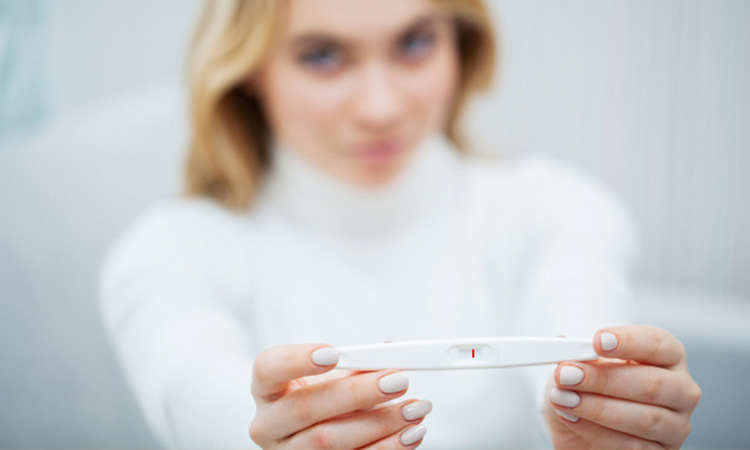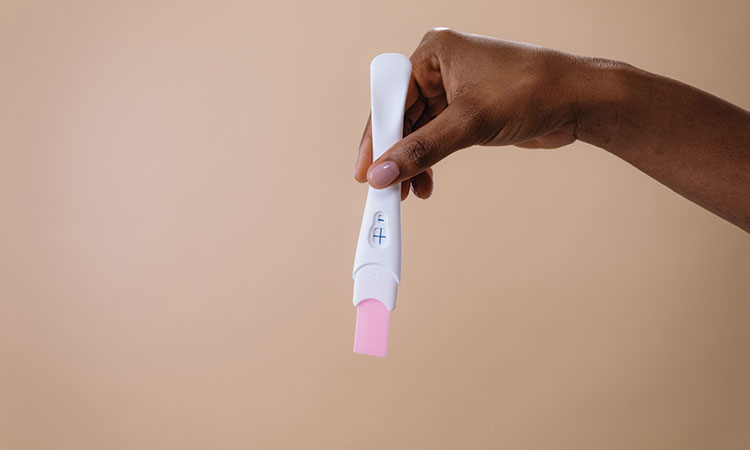Pregnancy is a different experience for every woman. While many women plan their pregnancy, for some, it happens when they least expect it. Both ways, pregnancy tests do have a vital role in a woman’s life, and there will be a time in every woman’s life to take a pregnancy test. Pregnancy tests have advanced significantly since the 20th century. Nowadays, many of the advanced pregnancy tests can potentially detect pregnancy even days before a missed period, the most common sign of pregnancy.
Most often, a pregnancy test kit is used when a woman misses her period, or has had unprotected sex, or feels she is having some early pregnancy symptom. Even if you are planning a pregnancy or doubt an unwanted pregnancy, you will be undoubtedly in an emotional roller coaster. A pregnancy test is the only thing that gets you off it.
Getting pregnant is one thing. However, it is equally important to know when to conduct a pregnancy test. Even now, it is found that many ladies miss the cue and only come to know about their pregnancy after a few weeks have passed. When it comes to pregnancy, it is always better to detect it as soon as possible. So, let us find out when to take a home pregnancy test.
When Should I Go For Home Pregnancy Test?
Before talking about taking pregnancy tests at home, let us consider if you really have to conduct this test. In case you find three or more of any of the following symptoms, it is better to go for a pregnancy test. These are by far the most common signs of an impending pregnancy.
- Missed period and very light spotting (actually, both these symptoms more often pinpoints pregnancy)
- Slight morning sickness (nausea, vomiting)
- Unusual tiredness
- Frequent urination
- Soreness/tenderness in the breast
- Mild abdominal cramps
- Develop aversion to food and sensitivity to smells
- Unusual mood swings
So now if you feel you are experiencing these symptoms, you may like to know how to go about taking a pregnancy test. But first, where should you get a home pregnancy test kit from?
Many women prefer checking for pregnancy in the house. If, for some, it is a question of convenience; for others, it is too personal to go and confirm pregnancy at a clinic. On the other hand, some women would like to hide a possible unwanted pregnancy from their close ones.
Calculate Due Date With Conception Date
Where To Buy The Home Pregnancy Test?
You can buy a home pregnancy kit from any nearby medical store. But if you have reasons not to buy it from the store near you, you can also order it online on Amazon and similar sites. Many departmental stores also stock home pregnancy test kits.
When Is The Right Time To Take A Pregnancy Test?
It is very important to take pregnancy test at the right time. Conducting a pregnancy test at the right time increases the chances of getting an accurate reading. Even if you are carrying, if the pregnancy test is taken early, it might give you a negative result. Also, in some instances, it may give a false positive in case of early hours miscarriages. The right time to determine when to take a pregnancy test depends on how regular your periods are.
If you have a regular and predictable monthly cycle, you can go ahead with a home pregnancy test as early as the first day after your first missed period. However, if you have an irregular menstrual cycle, it is always better to take the test once you pass the longest monthly cycle you ever had.
Let us say, you usually get your monthly period in 32 to 40 days, then the best time to take a test would be on or after day 41.
How Late Should My Period Be Before I Take A Pregnancy Test?

There are different forms of hCG found in urine during pregnancy. For example, a variant of this hormone, known as hyperglycosylated hCG (H-hCG), starts to get released promptly after the fertilization. Most pregnancy tests that claim to detect pregnancy as early as six days before your missed period is capable of detecting this particular variation of hCG.
The level of H-hCG is usually higher than that of hCG. Therefore, if you conduct a pregnancy test that detects H-hCG, the chances are more to get a positive result way missing your monthly chum. ON the other hand, if conduct a pregnancy test that only detects hCG, the chances of getting an early positive result is significantly less.
However, the majority of home pregnancy tests aren’t sensitive enough to detect H-hCG. Therefore consider the following before taking a pregnancy test:
- Your Period Should Be One Week Late: As already mentioned, during the early pregnancy days, the hCG levels usually doubles every two to three days. Thus, as the days go by, the accuracy of the test increases. The pregnancy test result will be more accurate if you wait until one week after your missed period.
- If You Have Regular Periods: In case you have a regular period and intended to take a home pregnancy test as soon as possible, wait at least two weeks after your estimated ovulation day. This is right around the day you expected your periods.
- If Your Period Is Irregular: If your periods are irregular and you doubt pregnancy and want to for a pregnancy test ASAP, take a pregnancy test about two weeks after your last unprotected intercourse.
What Is The Best Time Of Day To Take A Home Pregnancy Test?
Just like the right day to take home pregnancy test, the time you take a pregnancy test is also important for the accuracy of the result. You will get a more accurate result if you conduct a pregnancy test in the morning immediately after waking up.
This is so because home pregnancy tests work by detecting the level of hormone hCG (hormone human chorionic gonadotropin) in your urine. This hormone is only made during pregnancy. It is produced by some special cells in the placenta during the first few days of your pregnancy. Therefore, its presence in urine indicates pregnancy.
The level of hCG in urine will be high and more concentrated during the mornings as unlike other times during the day. This is because, while sleeping at night, you will not consume too much water to dilute the urine that affects the hCG levels. Therefore, the probability of getting accurate results increases if you take the test in the morning.
Make sure you are conducting this test in the morning, especially if you missed your period for only a couple of days.
The more concentrated your urine, the more chances of getting an accurate result.
The early morning pregnancy test will be 99 % accurate unless if;
- You wake up during the night to urinate often
- You drink water throughout the night, thereby diluting the urine
Still, this doesn’t mean you can’t go for a pregnancy test in the middle of the day or even at night. However, the chances are more for a false-negative result, especially if you just missed your period.
Do You Take A Pregnancy Test In The Morning Or At Night?
Make use of your first urine in the morning to test pregnancy. This will more likely brings aboutperfect results. However, if you are having an irregular sleep schedule, (like if you have night work), testing with first urine will not guarantee an accurate result. In that case, you can make sure there is enough hCG level in your urine by not drinking water and not urinating for at least four hours.
On the other hand, it is found that if you get a positive result when you do a pregnancy test in the afternoon or night when the hCG level is not high as in the morning, the chances are rare to get a false-positive result.
Points to consider before taking pregnancy test;
- Don’t use the bathroom for 4 hours.
- Limit fluid intake for 4 hours
It is sensible to take a home pregnancy test one or two weeks after unprotected sex or ten days after a missed period.
How Soon Will A Pregnancy Test Read Positive?
This depends on several factors. As already mentioned, the pregnancy test depends on detecting the hCG in urine. The more sensitive the test, the more sooner it will give accurate results.
- No pregnancy test will give you accurate results within six days after ovulation. This is because fertilized eggs will start producing pregnancy hormones only after successful implantation. Usually, the implantation occurs 6–10 days after ovulation.
- It also depends on the ability of the particular pregnancy test to detect the low hCG level. Even though most of the brands detect hCG if its level is more than 50ml, only a few detect it when the level goes below 50ml.
With a normal home pregnancy test, you can get a positive pregnancy test result on your missed period’s first day. Because by then, it will be about two weeks since you conceived.
With extra sensitive pregnancy tests, you will get a positive result, a maximum of 6 days before your due period.
When Will I Get A False Negative On A Pregnancy Test?

You may get a false negative in a home pregnancy test-
- If the test is conducted too early.
- If your urine is less concentrated.
- If the pregnancy test kit passed the expiry date.
- If you are on contraceptive pills.
- If instructions are not followed properly.
Whatever the result from a pregnancy test it, it can be life-changing. So it is important to keep all the points mentioned above in mind before heading for one. Pregnancy tests are the most precise if taken at the right time. The accuracy of the test also relies on your patience and the way you use it.
Make sure you read the instruction in the kit carefully. Once you get a positive result in a home pregnancy test, you should consult your doctor. Likewise, if your home pregnancy test came out negative, definitely take another one if your period still hasn’t shown up after a week. If that also turns negative, you should consult your gynecologist.

